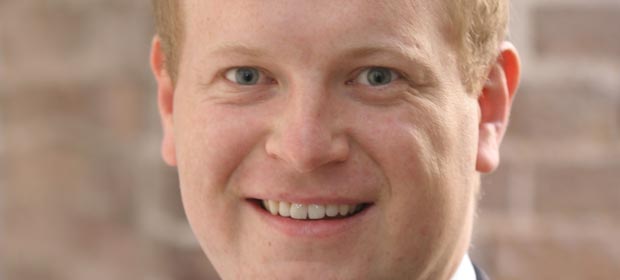In addition to the negative impact on the wellbeing of patients, Healthcare Associated Infections can also lead to an increased financial burden on the Irish health system, with reports indicating the annual cost is greater than €233 million, writes Brian Lee.
Healthcare Associated Infections (HCAIs) are presenting a significant challenge to the Irish healthcare system. HCAIs can cause substantial harm and even death. They can lead to more serious illness, prolonged hospital stays and can cause long term disability for patients resulting in a high personal impact for patients and their families.

In recent years, there have been numerous examples of significant outbreaks of Clostridium Difficile (C. Difficile or C. Diff) in Irish hospitals resulting in illness, deaths, cost and reputational damage to health services. The outbreak of C. difficile in the Mid-Western Hospital in Ennis is one such example. In this case, C. Difficile associated diarrhoea (CDAD) affected 46 patients and was a contributory factor to the cause of death in 13 of these cases. Click for HSE Review including local and national recommendations: http://www.hse.ie/eng/services/Publications/services/Hospitals/Review_of_Increased_Identification_of_Clostridium_Difficile,_Ennis.pdf
The investigation report into the outbreak highlighted several issues and made some recommendations which included the appointment of a consultant microbiologist, upgrading work on wards, including upgrading hand hygiene facilities, replacement of floor coverings, and increased hygiene awareness and training.
Almost 70 per cent of the 1,000 people surveyed admitted they are worried about themselves or a relative going into hospital and contracting a Healthcare Associated Infection
In addition to the negative impact on the wellbeing of patients, HCAIs can also lead to an increased financial burden on the Irish health system. Reports have indicated that the annual cost is greater than €2331 million1. Patients with a HCAI, compared to uninfected patients, on average:
- Stayed in hospital 11 days longer
- Incurred 2.9 times greater hospital costs
- Incurred 3.2 times greater post-discharge costs
An independent study of 1000 people2, commissioned by Resource, which supplies infection control and cleaning services to Irish hospitals, shows that fear of contracting a HCAI means fewer people are prepared to take the risk of hospital treatment. Almost 70 per cent of the 1,000 people surveyed admitted they are worried about themselves or a relative going into hospital and contracting a HCAI.
Nearly 50 per cent said this fear would prevent them from going to hospital and 47 per cent said either they, or someone they knew, had contracted a HCAI after receiving care at a hospital.
Improvement initiatives
Considerable research and improvement initiatives have been undertaken nationally and internationally to reduce the level of HCAIs and improve the quality of care patients receive. In 2009, the Health Information and Quality Authority (HIQA) published National Standards for the Prevention and Control of Healthcare Associated Infections in order to drive and promote improvements in the delivery of services. http://www.hiqa.ie/functions_infectioncontrol_overview.asp
HIQA has also carried out National Hygiene Services Reviews since 2007. Several new guideline documents have been published by the Health Protection and Surveillance Centre (HPSC), which focus on reducing HCAIs and improving the quality of care for patients. The practices, structure and process highlighted in these national initiatives and documents have become a high priority.
Evidence and research point out that infection prevention and control measures such as effective hygiene and cleanliness, antimicrobial stewardship, an appropriate and safe physical environment, access to the best advice and clinical support, excellent hand-hygiene practices, surveillance and decontamination, are critical to tackling HCAIs.
Environmental cleanliness is of key importance in a healthcare environment. Studies have indicated that HCAIs such as MRSA and other pathogens can be transmitted to patients from the hospital environment. If equipment and surfaces are not clean, hands will rapidly become re-contaminated when they are touched. Studies also suggest that intensified cleaning in targeted areas can lower the risk of transmission of HCAIs.
Latest research provides strong evidence that some HCAIs such as C. Difficile, Acinetobacter, MRSA, VRE and Norovirus are transmitted indirectly through contact with environmental surfaces
The latest research3 provides strong evidence that some HCAIs such as C. Difficile, Acinetobacter, MRSA, VRE and Norovirus are transmitted indirectly through contact with environmental surfaces.
There are numerous prevention and management methods that can be used to reduce HCAIs. These include:
- Dividing the hospital into zones, allocating cleaning operatives into specific areas and creating dedicated discharge teams to provide rapid response deep cleaning and decontamination for patient bays, where environmental cleanliness is vital.
- Using infection resistant materials and equipment to combat the spread of infections, as well as important protocols such as isolation room cleaning, risk level area cleaning, and operating theatre cleaning procedures, all of which are all critically important in maintaining a clean, safe hospital environment.
- A system known as Room Bio-Decontamination Service (RBDS), which uses hydrogen peroxide decontamination provides a unique solution in the eradication of unwanted micro-organisms such as bacteria, bacteria spores, viruses and fungi. This RBDS is well suited to a hospital’s requirement providing rapid, flexible and residue-free bio-decontamination. Decontamination can be provided for entire wards, side-rooms and medical equipment. The service can be proactive or reactive and it can be provided as part of an ongoing process or can be utilised as needed, particularly during an outbreak or a scheduled or unscheduled deep cleaning process.
Brian Lee is a Healthcare Manager with Resource, Ireland’s leading supplier of support and business critical services, which has included developing an infection prevention and control strategy that offers a unique support service to hospitals. This service complements and enhances existing infection prevention and control structures and processes. Previously Brian worked with HIQA for a number of years.
Visit www.resource-group.com for further information.
1METICILLIN-RESISTANT STAPHYLOCOCCUS AUREUS (MRSA) IN IRELAND: ADDRESSING THE ISSUES’ by Pfizer
2 Independent survey of 1000 people, carried out by The Leadership Factor on behalf of Resource
3 Tackling healthcare-associated infection through effective policy action – British Medical Association 2009

